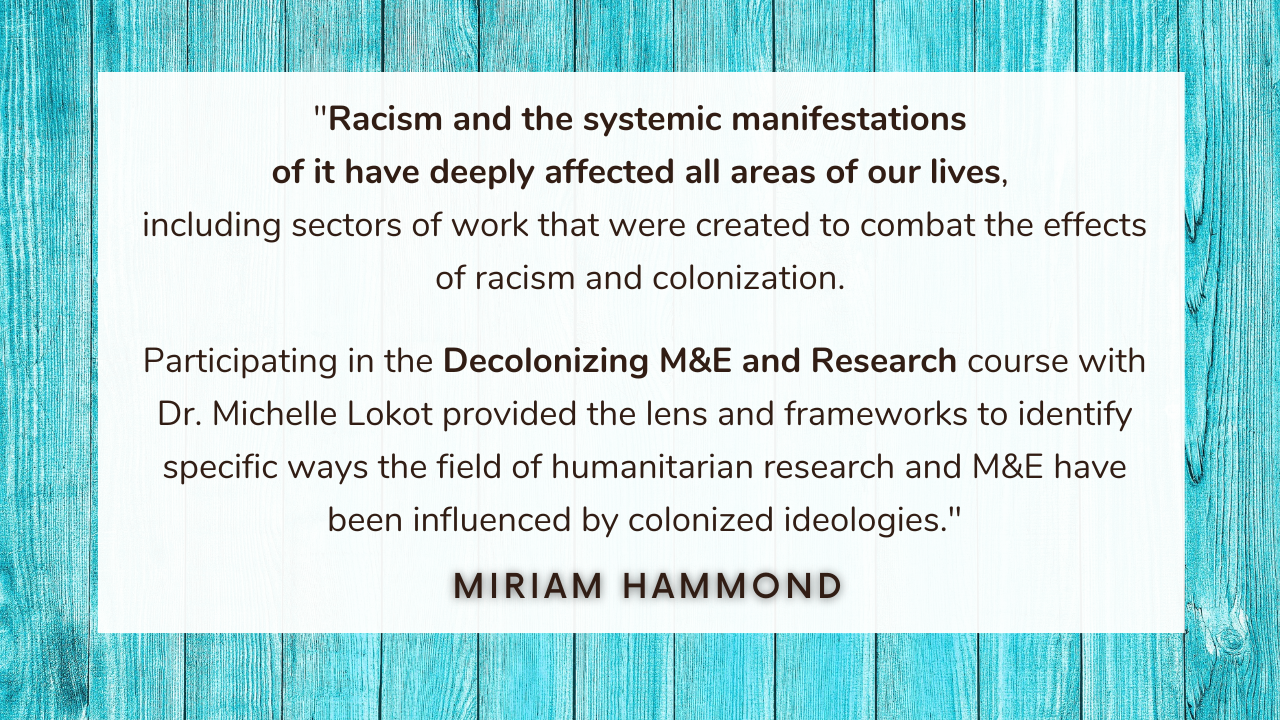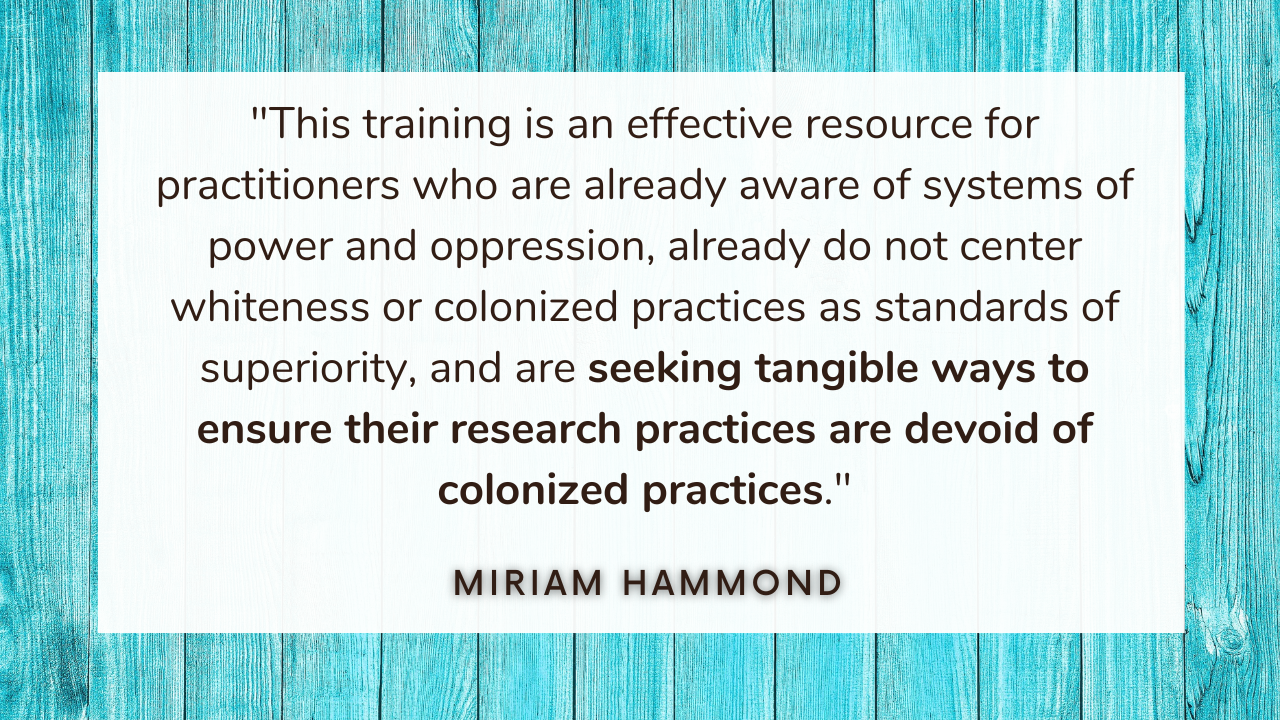Testimonial by Miriam Hammond about "Decolonizing M&E and Research"
This blog post was written by Miriam Hammond, a participant in Decolonizing M&E and Research with Dr. Michelle Lokot in March 2023. Sign up for the next session of this course here. Learn more about Miriam’s independent research company Deep Research Group and follow them on LinkedIn here.
In her seminal work, Why Are All the Black Kids Sitting Together in the Cafeteria?, Dr. Beverly Daniel Tatum posits that racism is similar to smog.
“Some days it is so thick it is visible, other times it is less apparent, but always, day in and day out, we are breathing it in.” ~Dr. Beverly Daniel Tatum
As with smog, racism and the systemic manifestations of it have deeply affected all areas of our lives, including sectors of work that were created to combat the effects of racism and colonization. Participating in the Decolonizing M&E and Research: Practical guidance from a feminist approach online training course with Dr. Michelle Lokot provided a lens and frameworks to use to identify specific ways the field of humanitarian research and M&E have been influenced by colonized ideologies. Further, it provided me with key principles to govern over my practice that will further ensure my work does not perpetuate the same systems and beliefs I seek to distinguish myself from.
Dr. Lokot cultivated an engaging and safe environment that encouraged participants to dig deep to learn common ways colonial ideologies show up in research and M&E. We interrogated published reports, we viewed media such as short documentaries with a critical lens, and we examined popular language and advertising materials.
As we learned how these ideologies commonly show up, we were provided with alternative research methods and alternative ideological frameworks to integrate into our work to replace them. We were encouraged to question ideas such as what the funder of the research tells us about power, how the choice of methods impact participation and power hierarchies, how local actors can be included in all parts of the research process including the scoping phase, and finally, what assumptions underlie in the choice of the research topic.
This training is an effective resource for practitioners who are already aware of the systems of power and oppression, already do not center whiteness or colonized practices as standards of superiority, and are seeking tangible ways to ensure their research practices are devoid of colonized practices. This field is intrinsically seeped with ideologies that enforce racism and many other discriminatory practices, and in order to see further through the smog, the manifestations of racism, the colonized ideologies that appear in this work, intention must be made to continuously reflect critically on our own and others’ work.
~by Miriam Hammond, founder of Deep Research Group


